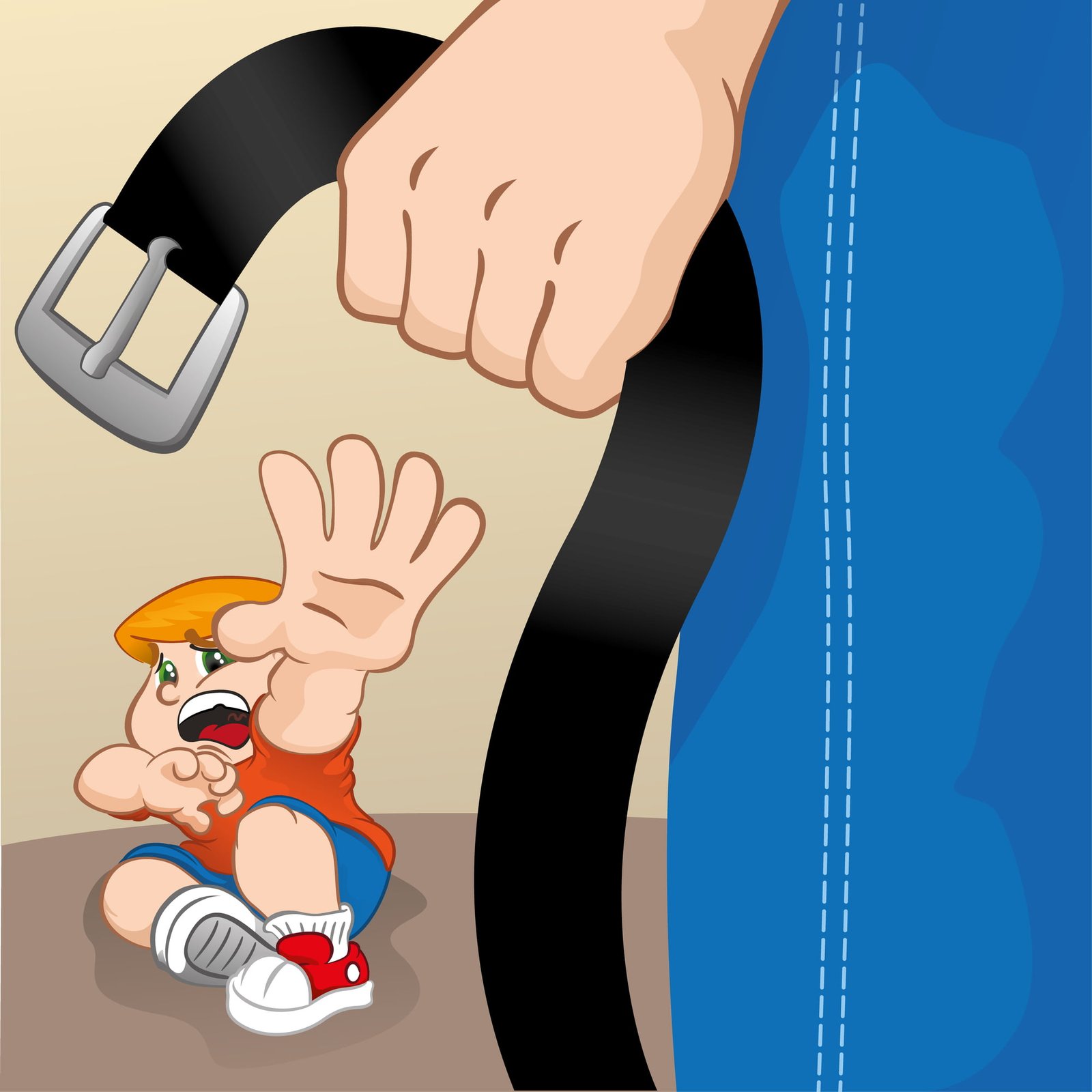Once upon a time, a family lived in a quaint suburban neighborhood that many considered picture-perfect. The parents, Jane and Mark, were loving and dedicated to their two children, Emma and Jake. They believed in teaching their kids right from wrong, and sometimes, they resorted to physical punishment to discipline their children. Little did they know this well-intentioned approach would have long-lasting, harmful effects on Emma and Jake’s lives.
The Cycle of Fear and Resentment
Jane and Mark’s story is not unique. Many parents believe physical punishment is an effective way to discipline children, ensuring they grow up respectful and well-behaved. However, studies consistently show that physical punishment can have severe negative consequences.
When Emma was six years old, she accidentally broke a vase that had been in the family for generations. Out of frustration and a desire to teach her a lesson, Mark spanked Emma. At that moment, Emma’s tears were not just from physical pain but from a deep sense of fear and betrayal. Instead of learning about responsibility and being careful, Emma learned to associate making mistakes with pain and fear.
Emotional Scars That Last a Lifetime
Emma and Jake’s story exemplifies how physical punishment can leave emotional scars. Children subjected to physical punishment are more likely to experience increased levels of anxiety, depression, and aggression. They may also struggle with self-esteem and difficulty forming healthy relationships later in life.
Emma grew up feeling anxious and fearful of making mistakes. In school, she hesitated to participate in class, afraid that her answers might be wrong and lead to punishment at home. This fear stifled her creativity and confidence, impacting her academic performance and social interactions.
Reinforcing Negative Behavior
Contrary to popular belief, physical punishment often reinforces negative behavior rather than correcting it. Children like Jake, who was spanked for throwing a tantrum, may become more aggressive and defiant. They learn that violence is an acceptable way to express anger and solve problems, perpetuating a cycle of aggression.
Jake began to exhibit aggressive behavior towards his peers, mirroring the punishment he received at home. His teachers noticed his increasing hostility and struggles with anger management, which only led to more disciplinary actions. Instead of learning to manage his emotions constructively, Jake’s behavior became a self-fulfilling prophecy.
Building Trust Through Positive Discipline
Positive discipline is a more effective and compassionate approach to child-rearing. It focuses on teaching and guiding children rather than punishing them. Parents can foster a supportive and nurturing environment by setting clear expectations, offering consistent consequences, and using positive reinforcement. Positive reinforcement, which involves rewarding good behavior to encourage its recurrence, is crucial in this approach.
Jane and Mark eventually realized that physical punishment was not yielding the desired results. They attended parenting workshops and learned about positive discipline techniques. They started using time-outs, loss of privileges, and natural consequences to teach their children responsibility and self-control.
Transforming Relationships
The shift from physical punishment to positive discipline transformed their family dynamic. Emma and Jake began to feel safe and loved, knowing that their parents were there to support and guide them, not to hurt them. Emma’s anxiety decreased, and she became more confident in expressing herself. Jake’s aggression subsided, and he learned healthier ways to cope with his emotions.
One day, Emma accidentally spilled juice on the new carpet. Instead of reacting angrily, Jane calmly asked Emma to help clean up the mess and explained the importance of being careful. This approach addressed the behavior and strengthened the bond between mother and daughter. Emma felt understood and respected, and she learned the value of responsibility without the fear of punishment.
The Ripple Effect
The positive changes in Emma and Jake’s behavior had a ripple effect on their overall well-being. They performed better in school, built healthier peer relationships, and developed a strong sense of self-worth. Their home became a place of trust and mutual respect, free from the shadows of fear and resentment.
Choosing Compassion Over Punishment
The story of Emma and Jake illustrates the hidden dangers of physical punishment and the profound benefits of positive discipline. As parents, choosing compassion over punishment can break the cycle of fear and aggression, fostering a nurturing environment where children can thrive emotionally, socially, and academically.
It’s time to abandon outdated disciplinary methods and embrace approaches that build trust, respect, and love. By doing so, we protect our children’s mental and emotional health and pave the way for a brighter, more harmonious future for our families. Remember, the goal is to raise happy, confident, and responsible individuals, beginning with how we discipline them.
